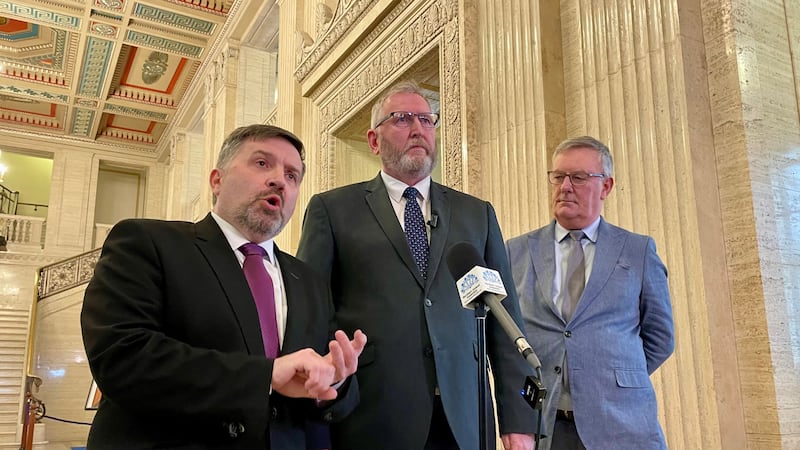For my sins I spend an hour or so every couple of days looking through the social media accounts of those who describe themselves as loyalists: and, just before someone jumps in to accuse me of one-sidedness, I also look through the accounts of other political factions too.
Anyway, the loyalist ones have been particularly interesting since October 2019, when the protocol first entered the public domain and rallies and protest meetings were organised in opposition.
As I noted in last week's column there's a new generation of loyalists - many probably only in their early teens, or not even born, in 1998 - who are angry right now. Very angry. They feel like they have been left behind: they don't recognise the 'progress' and 'change' they hear others speak of. They don't look to the DUP, UUP or TUV for leadership. They don't look to the PUP, either, even though its electoral roots were in loyalist communities. And most of them regard the Loyalist Communities Council as a virtual retirement home for men who, in the words of one 23-year old, "have no fight left in them."
A common complaint of the younger loyalists - although it's also heard from older ones, too - is that the PUL community is 'being conditioned' to accept they're impotent, second class citizens, forced to endure sectarian two-tier policing, a biased judiciary and a media which is never prepared to listen to their grievances. But the complaints go broader than that, to embrace the NIO, the British government, the Irish government, the EU, Joe Biden, every party which isn't unionist, liberals, lundies, Nolan, the BBC, columnists, commentators and just about every quango, institution or commission you could shake a stick at.
Their problem - and it really is their problem - is their lack of an alternative vision. The Good Friday Agreement isn't going to be ripped up just because they don't like it. The protocol isn't going to be rewritten to assuage their anger. The assembly isn't going to be mothballed because they hate Sinn Féin. Their isn't going to be a single, united unionist party. And, as they would soon discover, there are no wins to be gained by trying to reboot some sort of terror campaign.
If they want change they are going to have to work for it: and work hard. That means creating new community/political vehicles and bases which reflect their needs and address their concerns. They need to knock doors and find out what people want: during which they'd probably discover that employment, housing, education, training opportunities and a growth in local facilities matter much more than serial whinging about Sinn Féin. What they should already have learned is that expecting the UUP or DUP to represent their interests isn't going to be of much use, primarily because neither of those parties is genuinely left-of-centre.
The other lesson they need to heed is that very few unionists/loyalists actually vote for parties which have clear linkage to a loyalist paramilitary group. That's why the UDP disappeared after 1998 and why the PUP has no MLAs now and only a handful of local councillors. I know there are some trying to reboot the paramilitary threat and up the political ante, but I'm also pretty sure that has far more to do with making it easier for them to organise and run criminal operations than actually address socio/economic problems in working class areas. Let's be blunt: snorting coke is no substitute for raising GCSE passes and getting more young people - particularly young men - into employment.
But one thing is worth saying: irrespective of where the blame lies for the sense of abandonment and isolation many young loyalists (indeed, it also embraces many older loyalists) are experiencing, the fact remains they have been abandoned. I've been to enough discussions - many of them private meetings I've been invited to attend - to know that the sense of isolation is deep-rooted. And I've also talked to enough people to know that the vast majority just want to see improvements and new opportunities in the areas where they live.
If they continue to feel abandoned then we can't be surprised if two things happen: the vacuum is filled with new groups which will be difficult to control; and increasing numbers of the abandoned young will take their steer from very dangerous, destabilising influences. It's easy to demonise what you don't understand. And maybe that's the real problem: not enough people, including mainstream unionist parties, actually understand loyalism in the first place.








